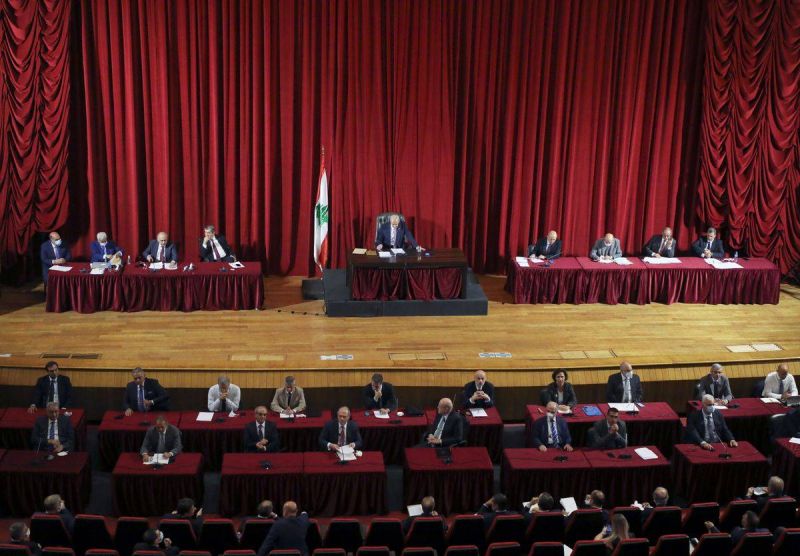
Lebanese Parliament Speaker Nabih Berri heads a parliamentary session, to discuss the new cabinet's policy program and hold a vote of confidence at UNESCO palace in Beirut, Lebanon September 20, 2021. (Credit: Mohamed Azakir/Reuters)
On May 21, the mandate of the outgoing Parliament will end. The next day, the newly elected members will come to the hemicycle chamber to begin a new legislature. The new tenants of Nejmeh Square will then be invited by the oldest member to hold a parliamentary session within 15 days to elect the president and the members of the bureau of the House.
It is probably at this stage that the first obstacles are likely to appear, knowing that few MPs are inclined to the renewal of Nabih Berri, the current head of Parliament who has been in office for three decades.
"It is important to know that the 15-day deadline is an incentive and not a constraint," says Said Malek, a constitutional expert. This means that the period for the election of the Parliament speaker could extend well beyond the two weeks provided by the law if the deputies could not agree on a name —"A situation that has never happened in history," said Malek. However, this scenario shouldn’t be ruled out, knowing that several formations and members of the new Parliament have already pledged, in front of their voters, not to re-elect Nabih Berri, to whom Hezbollah and its allies of March 8 remain attached. If the crisis persists, an Iraq-style scenario is to be expected — the Iraqi parliament has not been able to elect its president for more than three months — unless a compromise is found in the meantime.
Until then, parliamentary blocs will begin to form gradually, according to political affinities. This is a crucial deadline that will determine the balance of power within the chamber and the voting dynamics according to the issues under discussion.
Formation of a new government
On the executive level, the government is considered to resign on May 22. The President of the Republic must then convene the deputies to undertake binding parliamentary consultations with a view to appointing a Prime Minister. Once appointed, the Prime Minister is then responsible for forming a government, a task often considered the most tedious in Lebanon and one that could take months if a compromise is not reached. If no agreement is reached, the executive headed by Najib Mikati will become a caretaker government in the strictest sense of the word. It will therefore no longer be able to meet or take important decisions such as those concerning the major economic and financial reforms expected by the International Monetary Fund in particular.
Election of the President of the Republic
The second major item on the agenda of the deputies is the election of the new President of the Republic, whose term expires on Oct. 31, 2022. Here again, and in accordance with Article 62 of the Constitution, the prerogatives of the Head of State will be delegated to the new cabinet or, failing that, to the government in charge of current affairs, in the event of a vacancy, which will then be exercised by the entire executive until the election of a new President. "In the event of a vacancy in the office of President of the Republic for any reason, the powers of the President of the Republic shall be exercised on an interim basis by the Council of Ministers," Article 62 notes. An interim mandate, that given Lebanon’s history, could last forever.
This article was originally published in French on L’Orient-Le Jour.